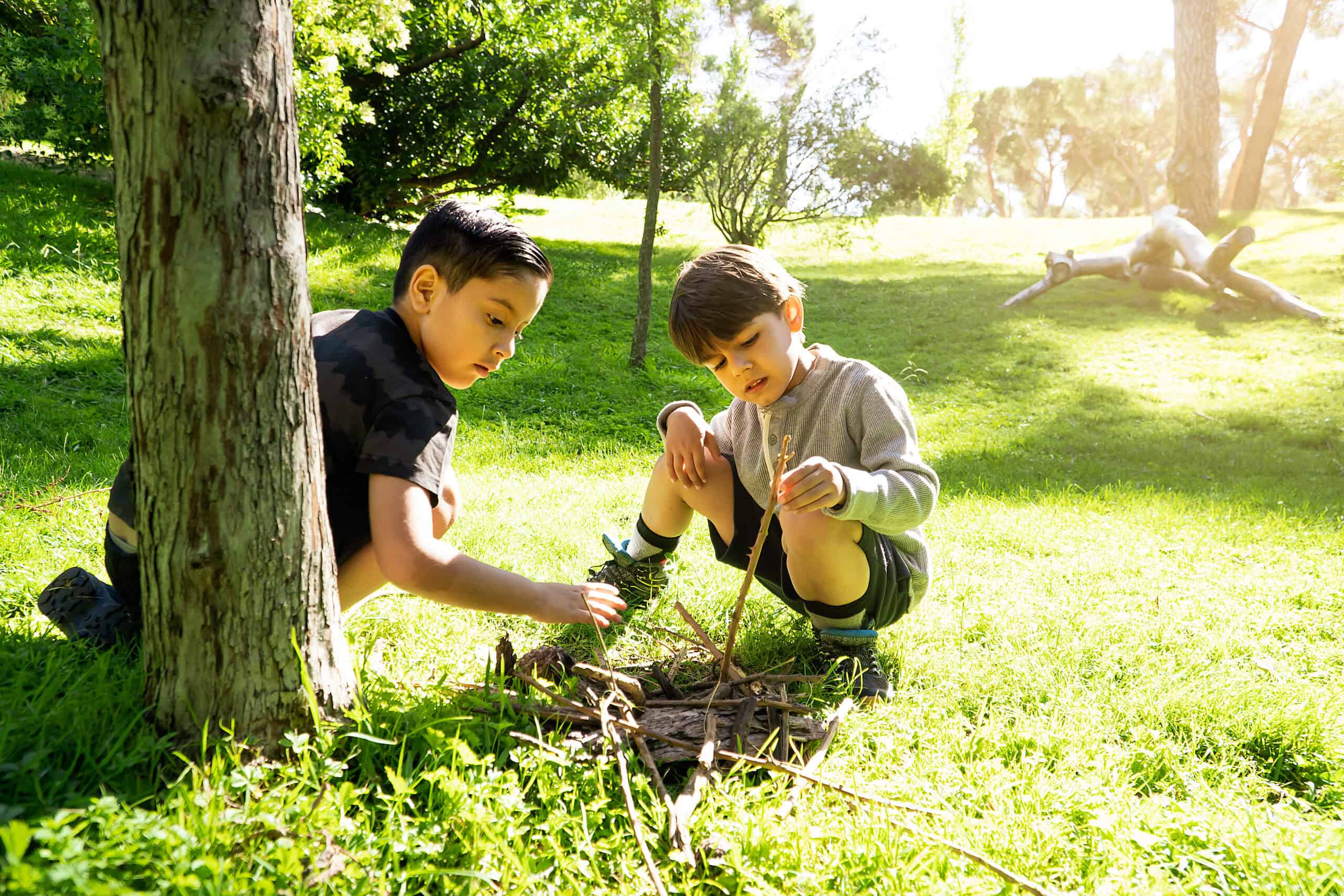Have you ever wondered why some kids seem more focused, organised, or able to stay calm under pressure?
Executive functioning has become a popularised brain word. What exactly is executive functioning? It is the brain’s way of processing information while regulating the self.
It involves our working memory, planning, self-monitoring, time management, self-control and organisation. Strong executive functioning skills help strengthen relationships, school and workplace interactions.
From Observation to Action: The First Steps in Executive Functioning
Fostering executive functioning begins early in life. Even babies a few months old begin to work on executive functioning skills by watching close adults. Babies watch adults interact with objects around them. This begins a child’s early opportunity to work on executive functioning skills.
These skills can be boosted through modelling and demonstrating all the things one can be thinking about when interacting with objects. Thinking aloud will increase the child or babies’ attention to the objects and allows their mirror neurons (neurons that respond the same to watching the behaviours of others as they do when one does the behaviour themselves) to support an increase in executive functioning skills (for practical insight into how early relational experiences shape these capacities, see How Can Parents Build Emotional Resilience in Children?).
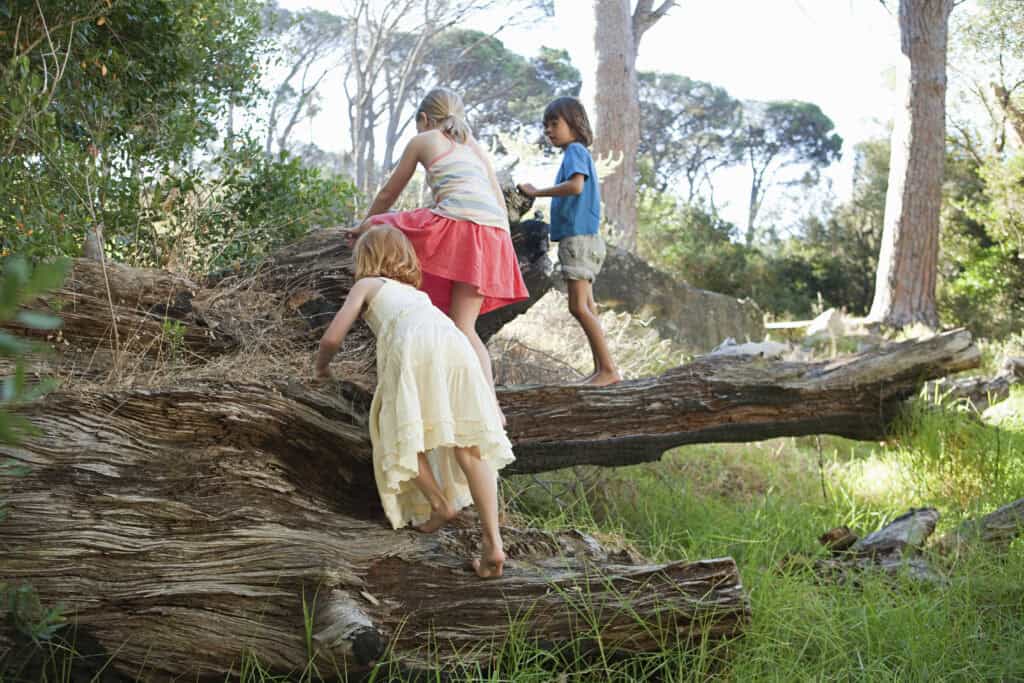
Neuroscience Insight
Executive function is like the brain’s air traffic control system – nagging thoughts, actions, and emotions so children can navigate life successfully.
This system begins developing in infancy, shaped by the child’s environment and early interactions. Neuroscientists have found that when caregivers engage in responsive play, especially while narrating their thought processes or encouraging problem-solving, it activates a network of brain regions in the prefrontal cortex. These areas are responsible for working memory, impulse control and emotional regulation.
Regular, meaningful play builds and strengthens these neural circuits – laying the foundation for everything from focused learning to handling disappointment. This is also central to emotional resilience (learn more in The Science of Emotional Resilience: Strategies That Work).
Everyday Moments, Lifelong Skills: How Play and Problem-Solving Build Executive Function
A powerful tool to help children see executive functioning in action is when adults model reading and problem-solving. This can be demonstrated when working with a recipe and talking aloud. This interaction involves partnered work with the parent and child.
As the child listens, watches and figures out (problem solves) how to measure the sugar, sift the flour and get all the ingredients into the bowl, it will strengthen their executive functioning skills.
Likewise, activities like gardening together, planting herbs, or building bug hotels outdoors not only promote planning and sequencing but allow children to engage in real-world systems thinking.
Natural environments offer rich contexts for emotional regulation and sustained attention – core components of executive functioning.
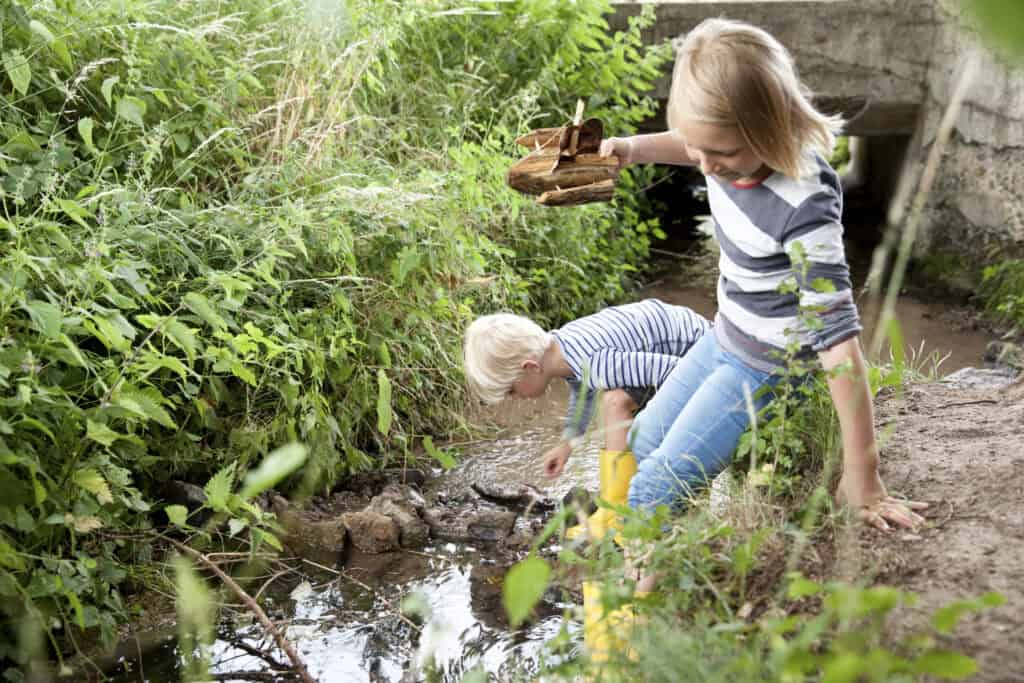
Physical play is another way children can practice executive functioning skills. Incorporating movement can be a fun way to bolster a child’s ability to focus, plan and inhibit (knowing when to not do something).
Interestingly, when children play with toys that are simple (such as blocks without flashing lights and music), it allows for more stimulation and increases executive functioning as the ‘work’ is all in the hands of the child.
Playing in nature – balancing on logs, navigating tree roots, or building forts from branches – adds complexity to planning and flexibility. These dynamic, unstructured settings demand moment-to-moment adjustments, helping children strengthen adaptability, working memory and emotional self-regulation.
If you’re navigating behavioural challenges that might arise in these play moments, Understanding Challenging Behaviours in Children can be a helpful guide to seeing them through a neurological lens.
PAUSE AND REFLECT
Think about a time when your child watched you closely while you were solving a problem or trying something new.
How might that simple moment have helped shape their brain?
It’s Never Too Late: Strengthening Executive Function Through Practice and Mindfulness
Later in life, executive functioning skills can still be strengthened if practiced. Practicing focused attention using purposeful mindfulness will help increase executive functioning. Setting aside time for a certain task and giving focus to just that one task will strengthen pathways within the frontal lobe.
There is importance in engaging in tasks in a positive manner; interacting without getting angry will fuel the cycle for increasing executive functioning skills in a positive manner. If you find it hard to devote focused attention to a single task or notice yourself becoming frustrated, remember that small, spaced out, repeated practice will make this easier.
Nature-based mindfulness – such as cloud-watching, walking meditations, or simply observing birds – has been shown to reduce cortisol and support emotional regulation in children. These calm, focused moments in outdoor settings provide ideal conditions for strengthening executive functioning.
To support this, consider reducing digital distractions at home—Creating Digital Boundaries to Protect Your Mental Space offers some useful, science-backed ideas.
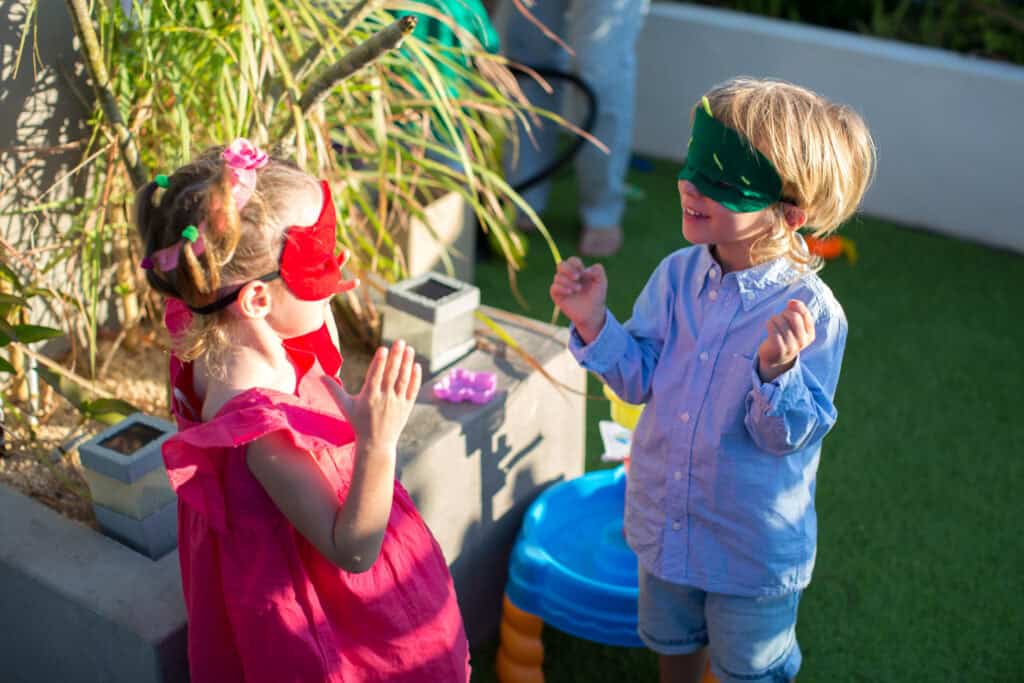
How Play Builds Executive Function
Play isn’t just entertainment – it’s executive function training in disguise.
When children engage in play, they naturally practice the core components of executive functioning: planning, focus, memory, flexibility and self-regulation. For example, building a tower out of blocks requires planning and trial-and-error. Playing hide-and-seek involves inhibiting impulses, tracking rules and remembering locations. Even pretend play strengthens working memory as children hold roles, scenarios and “rules” of the game in mind.
Physical play, like obstacle courses or dance routines, increases cognitive flexibility and motor coordination, while social play encourages negotiation, turn-taking and emotional regulation – all executive function skills in action. And when adults model problem-solving or talk through their thinking, children absorb those strategies and learn to apply them on their own (explore How Children Learn to Connect: The 6 Stages of Play to understand how each phase of play supports memory, regulation and problem-solving).
Unstructured outdoor play adds additional cognitive challenges – like managing uneven ground or assessing the height of a branch – activating spatial awareness and adaptive problem-solving. These natural tasks help children learn how to evaluate risk, persist through frustration and return to calm after setbacks.

Cultural Connection
Executive functioning may be universal, but how it’s developed varies greatly across cultures.
In Indigenous Māori communities of New Zealand, children often learn through communal storytelling and shared responsibilities, rather than formal instruction. By participating in group rituals, caring for younger siblings and observing elders, children practice memory, planning and emotional control in real-life contexts.These early experiences promote executive functioning not through worksheets or schedules, but through deeply embedded cultural practices that value observation, patience, and collective responsibility.
Actionable Steps
Looking to support your child’s executive function development through everyday life? Try these simple strategies:
- Narrate your thinking: Whether you’re solving a problem, cooking, or organising, talk through your decisions and actions to model planning and self-monitoring.
- Create routines with flexibility: Give structure to your child’s day while leaving space for open-ended, self-directed play.
- Prioritise unstructured play: Offer simple toys like blocks, cardboard, or art supplies that invite problem-solving, imagination and decision-making.
- Play movement games: Try “Simon Says,” scavenger hunts, or yoga for kids – these help children build focus, memory and impulse control.
- Practice mindful attention: Encourage short periods of focused play or quiet time, gradually increasing their ability to stay with a task.
- Celebrate effort, not just results: Reinforce persistence, planning and regulation with praise like “I noticed how you didn’t give up!” or “You really thought that through.”
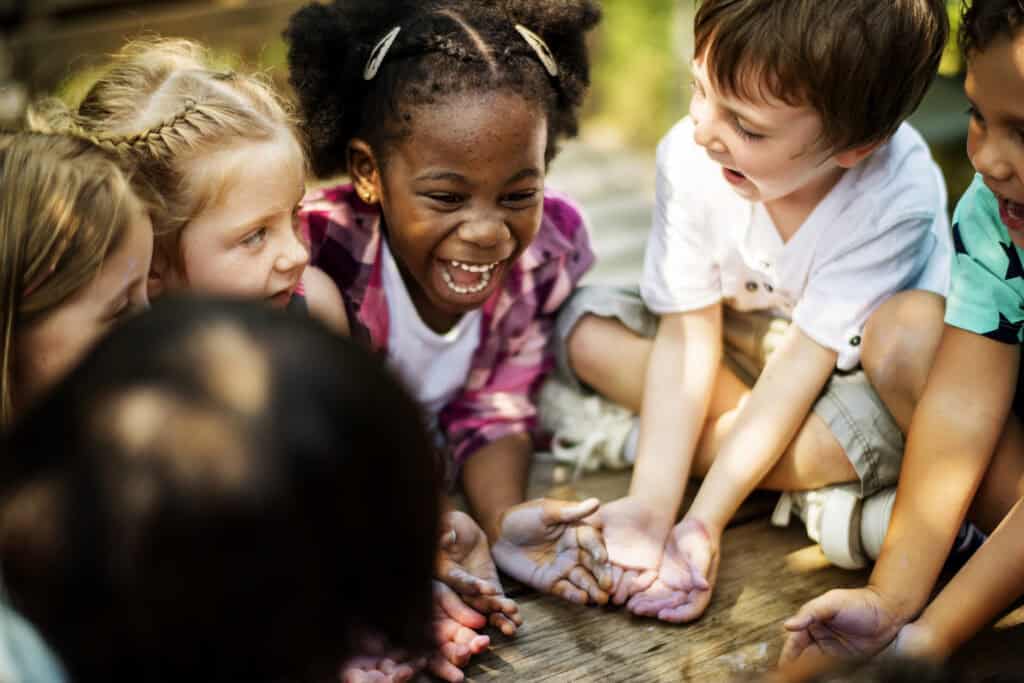
Free Resources
We believe every parent and educator should have access to evidence-informed, practical resources that support children’s cognitive development. These free tools can help you take the next step:
- Monthly Activity Ideas – Simple, everyday play prompts that build focus, memory, and planning.
- Types of Play Checklist – A tool to observe and enhance the variety of play children engage in.
- Incorporating Music Into Daily Activities – Ways to integrate music into daily routines to boost memory and attention.
- 8 Senses Scavenger Hunt – Strengthens sensory regulation and body awareness using nature-based prompts grounded in neuroscience.
All resources are free to our subscribers. Sign up here to download, print, and start using them right away to support inclusive, joyful learning.
Final Thoughts
The more positive opportunities adults have to practice executive functioning skills, the more the executive functioning skills will develop. By starting this practice early and supporting a child’s focused attention on a toy or play object, even if just for ten minutes a day, has shown to nurture improved executive functioning skills.
Ensuring these opportunities occur daily – even through small activities that seem routine, like cooking together – can help parents facilitate development of skills that will help their child throughout their life.

Reflect
Know a fellow parent or educator who might find this helpful?
Share this blog piece with them and start a conversation about the simple but powerful ways play builds lifelong skills.
References:
- Clearfield, M. 2020. My New Life Podcast: What Executive Function Predicts About Babies. The Loveevery Podcast. https://mynewlife.libsyn.com/004-the-marshmallow-test-what-executive-function-predicts-about-babies
- A Guide to Executive Function. (2025, March 13). Center on the Developing Child at Harvard University. https://developingchild.harvard.edu/resource-guides/guide-executive-function/
This piece was written for you by
Educator and Content Curator / Social Media Lead at NeuroChild
Marcy brings a rich background in classroom management, educational leadership, and content development to her role at Neuro. With a passion for crafting meaningful learning experiences, she curates and communicates evidence-informed resources that support children’s growth and wellbeing. At NeuroChild, Marcy ensures every post, article, and idea is grounded in both care and clarity—making complex topics feel accessible, supportive, and relevant to families and educators alike.
